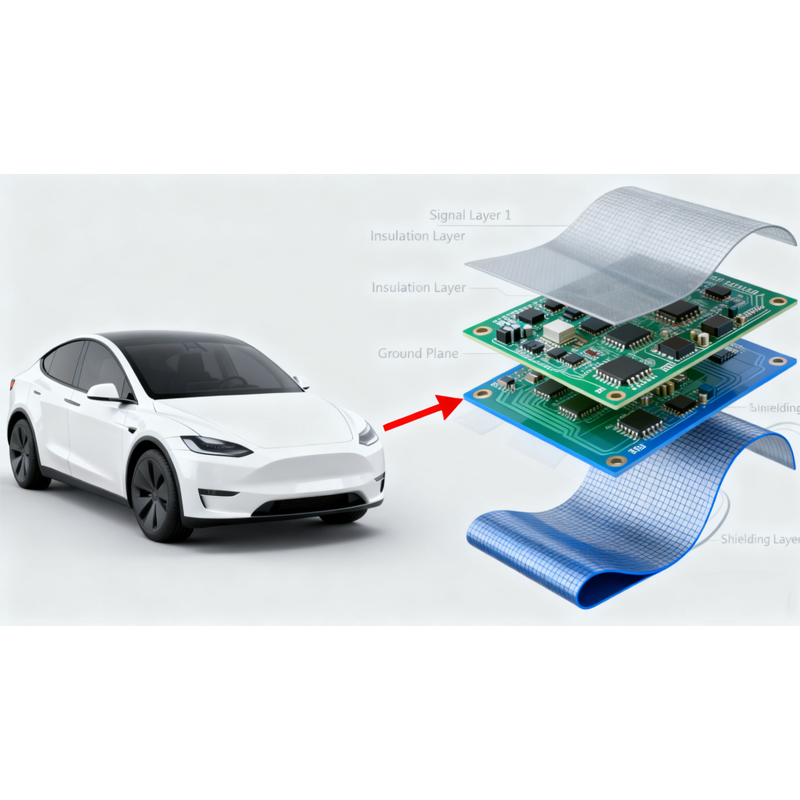Date: 2025-11-06
People keep asking me where these expensive multi-layer flex circuits actually make sense. Well, here's the real deal - they're not for your average project.
The Fancy Gadget Stuff
You know those foldable phones everyone's going crazy over? The hinge area uses these boards. They can handle being folded and unfolded forever while doing multiple jobs at once - screen signals, touch data, and power. Regular boards would mess up the signals.
Those high-end AR glasses and premium smartwatches? They cram these boards into ridiculously small spaces. We're talking about fitting sensors, wireless stuff, and display drivers into something thinner than a pencil.
Professional audio equipment uses them too. Wireless mics and expensive headphones need clean sound without interference, and these boards deliver while fitting into weird-shaped cases.
Car Electronics That Can't Fail
Modern cars are basically computers on wheels, and they need reliable circuits:
Electric car systems use these boards to handle both high power and delicate sensor signals without them interfering with each other.
Self-driving car sensors like LiDAR and radar depend on these boards for crystal-clear signal quality. You don't want your car getting confused because of electrical noise.
Fancy dashboard displays use them because they can bend to fit curved surfaces while handling video, touch, and audio signals all at once.
Medical Gear Where Lives Are on the Line
When people's health depends on equipment working perfectly:
Medical scopes and probes use super-thin versions of these boards that can bend through tight spaces while keeping image signals clean.
Implants like pacemakers use them because they're reliable enough to trust inside someone's body for years.
Lab equipment uses them to get accurate readings by keeping different measurement signals separated and clean.
The Really Tough Jobs
For environments that would kill regular electronics:
Factory robots use them in joints that are constantly moving, surrounded by electrical noise from other equipment.
Satellites and drones use them because they're light, reliable, and can handle extreme temperatures and radiation.
Industrial sensors that measure multiple things at once use the separate layers to keep everything organized.
The Bottom Line
You only need these expensive boards when:
Failure isn't an option
Space is crazy tight
Signals can't afford to get messy
Things need to bend or fit weird shapes
They're not for everyday projects - the cost will make your eyes water. But when you really need them, nothing else will do the job right.
Kaboer manufacturing PCBs since 2009. Professional technology and high-precision Printed Circuit Boards involved in Medical, IOT, UAV, Aviation, Automotive, Aerospace, Industrial Control, Artificial Intelligence, Consumer Electronics etc..